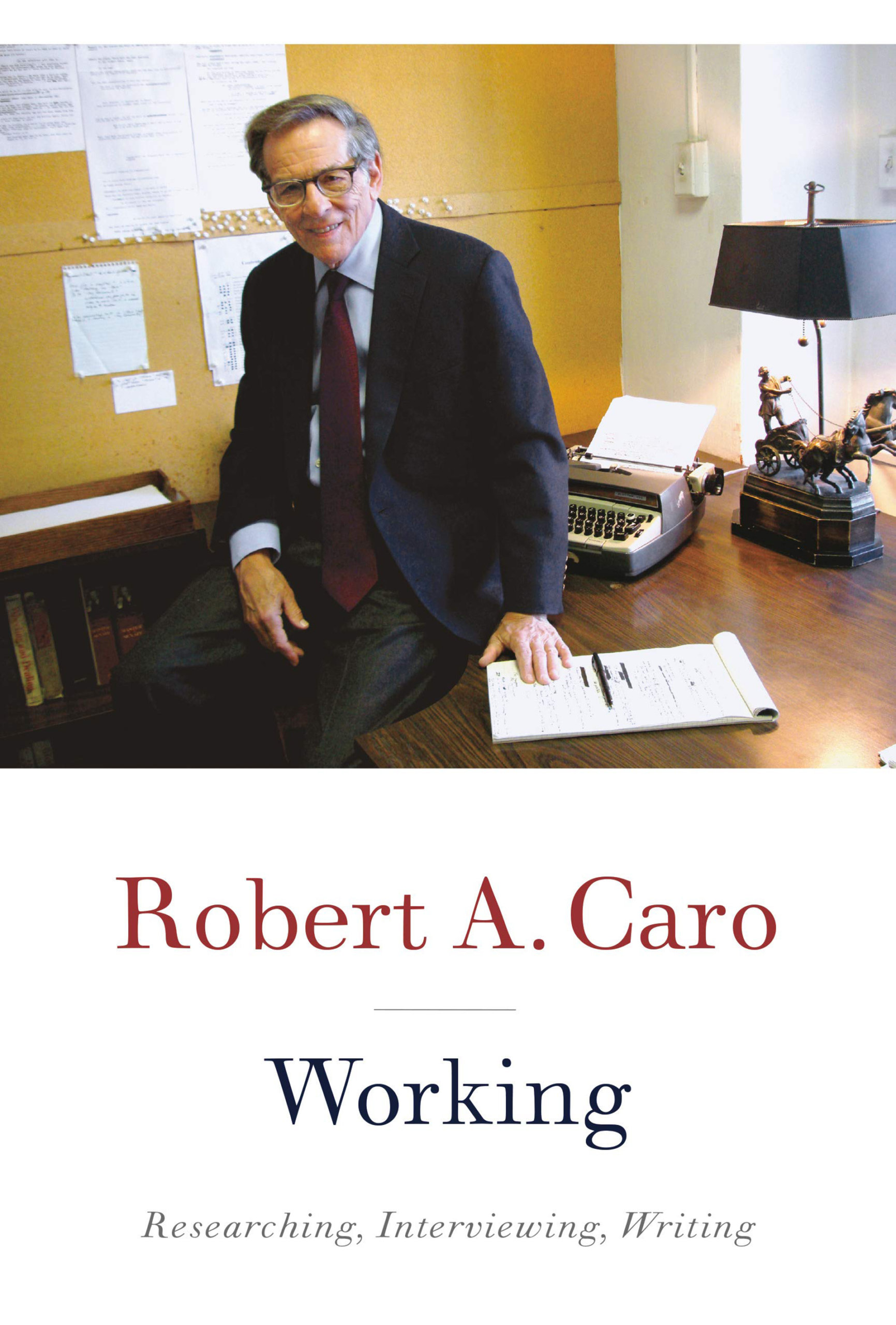Caro Divulges Work Behind Writing


As a book reviewer, I tend to jot down page numbers I want to return to because I think they exemplify something about substance or style. In “Working,” Robert Caro’s superb memoir subtitled “Researching, Interviewing, Writing,” I noted almost every page. Want to be a political reporter, biographer, cultural historian? Forget graduate or journalism school. Just read this book.
Caro, the multiple Pulitzer Prize-winning author and recipient of many other prestigious awards (and a part-time East Hampton resident), is best known for his tomes on two brilliant, ruthless men: Robert Moses, the subject of “The Power Broker” (1974), and LBJ, who prompted “The Years of Lyndon B. Johnson,” four volumes of which have already been published (1982, 1990, 2002, 2012), the fifth and last due out, Caro jokingly hopes, “in his lifetime.” He’s 84.
What takes him so long? It’s his least-favorite question, but he addresses it in “Working,” with humor and passion and in a wonderfully conversational style. It’s as though he’s in your living room, chatting with you. His manner tells a lot about him as a professional writer and a human being. He was actually known as a fast writer when he began his investigative life at Newsday, but when he left to probe the nature of political power — who had it and how it affected those who didn’t — his work slowed down because his subjects were so complex and he wanted to make sure he explored everything from every point of view and be thorough and fair.
A colleague once told him that the key to good investigating reporting was to “turn every page,” and Caro’s been doing that for years. Persistent, skeptical, modest, he doggedly went back to sources, found new ones and repeatedly called and wrote to people, minor as well as major, because he believed that all of them would contribute to his understanding of those who wielded political power and those whose lives were changed by that power, whether for good or for bad.
Sometimes the going got rough, as when Caro showed Robert Moses evidence that construction plans for the Northern State Parkway took an odd southern detour that wrenchingly displaced local farmers but left Gold Coast robber barons at a safe remove from the working poor. The arrogant Moses had denied such allegations, saying that the route’s determination had been dictated by engineering considerations. When Caro confronted him, however, the cold-staring, dark-eyed Master Builder strode away and subsequently ordered that Caro never be granted entrée again to him or his associates.
The experience educated Caro about the ambivalence toward powerful “visionaries” that often attends their accomplishments. Robert Moses could be a cruel, calculating — unelected — despot, but over the span of at least four decades, he connected the boroughs of New York, and the city with outlying regions by way of expressways, bridges, parkways, shorelines, parks, urban centers, beaches. He built New York.
Caro’s only assistant throughout his research has been his beloved wife of 62 years, Ina Caro, a historian herself. At the start, it was hardly smooth sailing. He has left a secure job and had no adequate advance for the Moses book. Ina sold their house in Roslyn because they could no long afford it or Long Island. They wound up in an apartment in The Bronx, and when he was researching LBJ, they moved to the Texas Hill Country where Johnson came from, so that Caro could “feel” the roots of LBJ’s fierce political drive.
Place is important to Caro as an informing contribution to character. He even camped out for a while in the Hill Country to learn what it was like to be totally isolated with no one around for miles. He then appreciated that when LBJ brought electricity to the area, he was revered like a god. The portraits of the women in the Hill Country area, old before their time, overworked and often left alone for weeks on end, resonate with unforgettable Depression-like authenticity. Here is nonfiction at its best, using the elements of fiction to inform facts with feeling.
Some sections of “Working” have been previously published, but they are effectively united here and augmented by new musings, including a summary interview Caro gave to The Paris Review in 2016 on the art of biography. Attractive inside book covers show Caro’s obsessive editing — he writes longhand, uses a typewriter and revises even final proofs. But it’s his meticulous and moving achievement in discovering and disclosing the “raw, naked essence of political power” that distinguishes his work. This is an amazing, inspiring book. An example of how to do it right.



